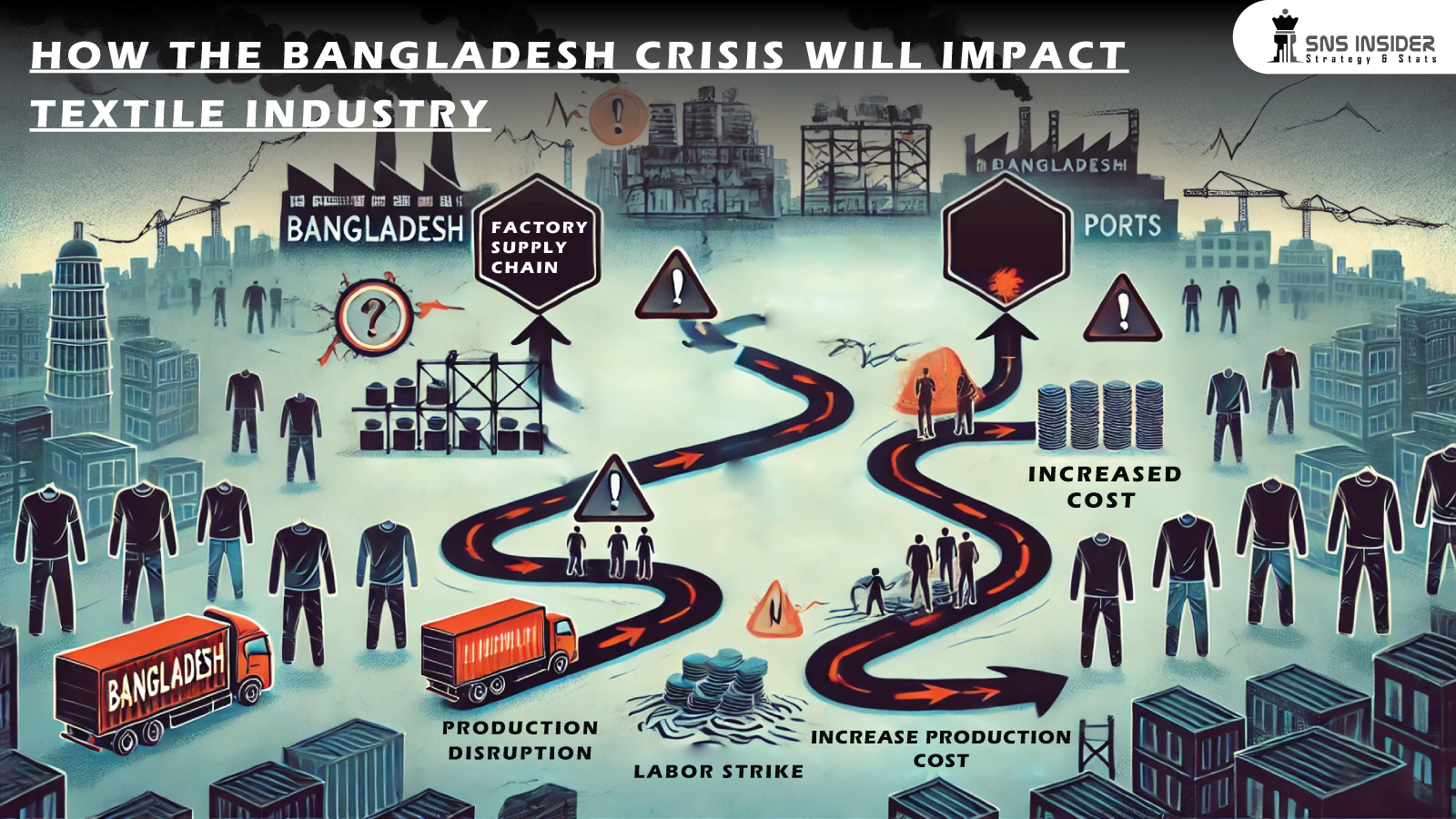
Bangladesh is one of the fastest-growing economies in the world. The country exports clothes worth around USD 40 billion to the global market. The country's smart textile sector has been badly damaged by Bangladesh's protracted political and economic crises, which were precipitated by Prime Minister Sheikh Hasina's resignation and the following military takeover. Production levels are greatly impacted by key concerns such as industrial closures, reduced operating hours, and disruptions in the gas supply.
Bangladesh's textile sector, which accounts for a sizeable amount of the nation's exports, is going through a difficult time. Orders from overseas buyers are starting to move to other areas, like India. Due to this change, the Indian textile hubs particularly Tirupur stand to gain an extra USD 300 400 million in monthly revenue. Order rerouting may help relieve some of the strain on global supply networks by offsetting some of the disruption caused in Bangladesh. Moreover, Bangladesh’s monthly apparel export is USD 3.5-3.8 billion and has a high double-digit share in the European Union and the U.K. and a 10 percent market share in the U.S.
The textile industry is one of the major sectors of Bangladesh's economy with more than 75% of its exports and more than 14.5% of its GDP. The primary markets for Bangladeshi textiles are the EU, the U.S., Canada, Japan, and Australia.
Some of the major clothing brands such as H&M, Zara, Nike, Adidas, Gap Inc., Uniqlo, Abercrombie & Fitch, J. Crew, and Forever 21, are outsourcing their textile material from Bangladesh and are more dependent on their textile industry due to its cost and variety. But now due to the crisis, the manufacturers have shifted towards other countries for outsourcing its material. India is one of them which will provide the material and increase its revenue in the textile industry.
For instance, Due to the sudden Bangladesh crisis, impacted the Indian textile stock such as, Gokaldas Exports ended a five-day losing streak Wednesday, rising 19% during intraday trade to ₹1,095 apiece. Rally percentages ranged from 5% to 17% for other textile stocks, which include KPR Mills, Vardhman Textiles, Welspun Living, S.P. Apparels, Nitin Spinners, Arvind, and Himatsingka Seide.
U.S. Market:
The U.S. textile market is being significantly impacted by the current crisis in Bangladesh, which is characterized by severe political instability and economic difficulties. Bangladesh is a significant supplier of ready-made garments (RMG) to the US, therefore any disruptions in the country's textile industry might have an impact on the entire global supply chain.
U.S. retailers and brands who depend heavily on Bangladeshi suppliers for a significant amount of their inventory are directly impacted by this. U.S. companies are encountering delays and shortages in their product lines due to factory closures and decreased production. This is especially the case for T-shirts, trousers, and sweaters, which are important export commodities from Bangladesh.
Europe Market:
The situation in Bangladesh is forcing European textile companies to look for more reliable and compliant suppliers, which could result in a major reorganization of the supply chain and more trade with other countries that produce textiles. Therefore, Europe shits towards the other countries such as India. This shift may help India to generate more revenue and grasp the opportunity in the textile industry.
Japan Market:
Japan is emerging as one of Bangladesh's main export and investment partners. By 2030, the nation's producers hope to export USD 10 billion worth of clothing to Japan. In recent years, Japan has also been one of Bangladesh's main investment sources. Japan is now one of Bangladesh's top export markets for ready-made clothing and a significant source of foreign direct investment. Japan's total foreign direct investment (FDI) climbed to USD 380 million between 2019 and 2022, a yearly rise of 7.61 percent. However, the crisis will impact the market now Bangladesh is not able to fulfill the demand and needs. Therefore, Japan's textile industry order impact and it may increase the price of products and shortage of the demand in the textile industry.